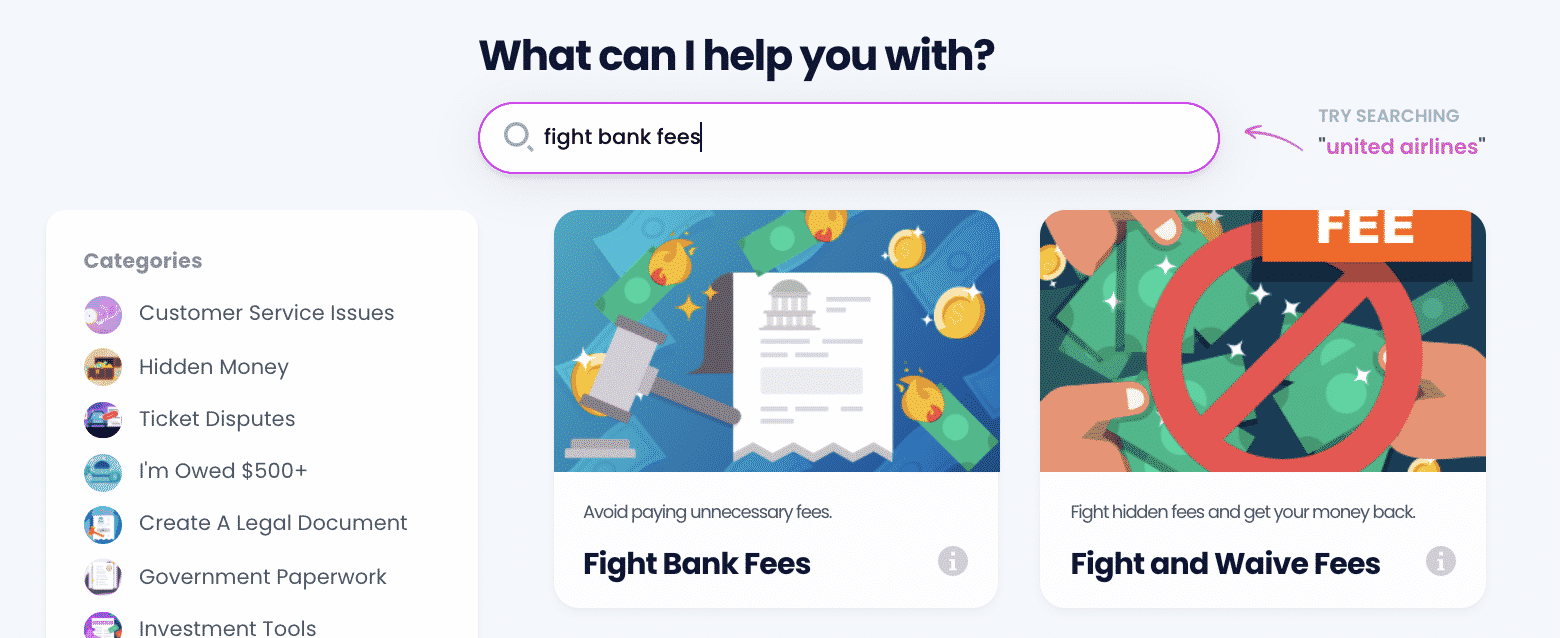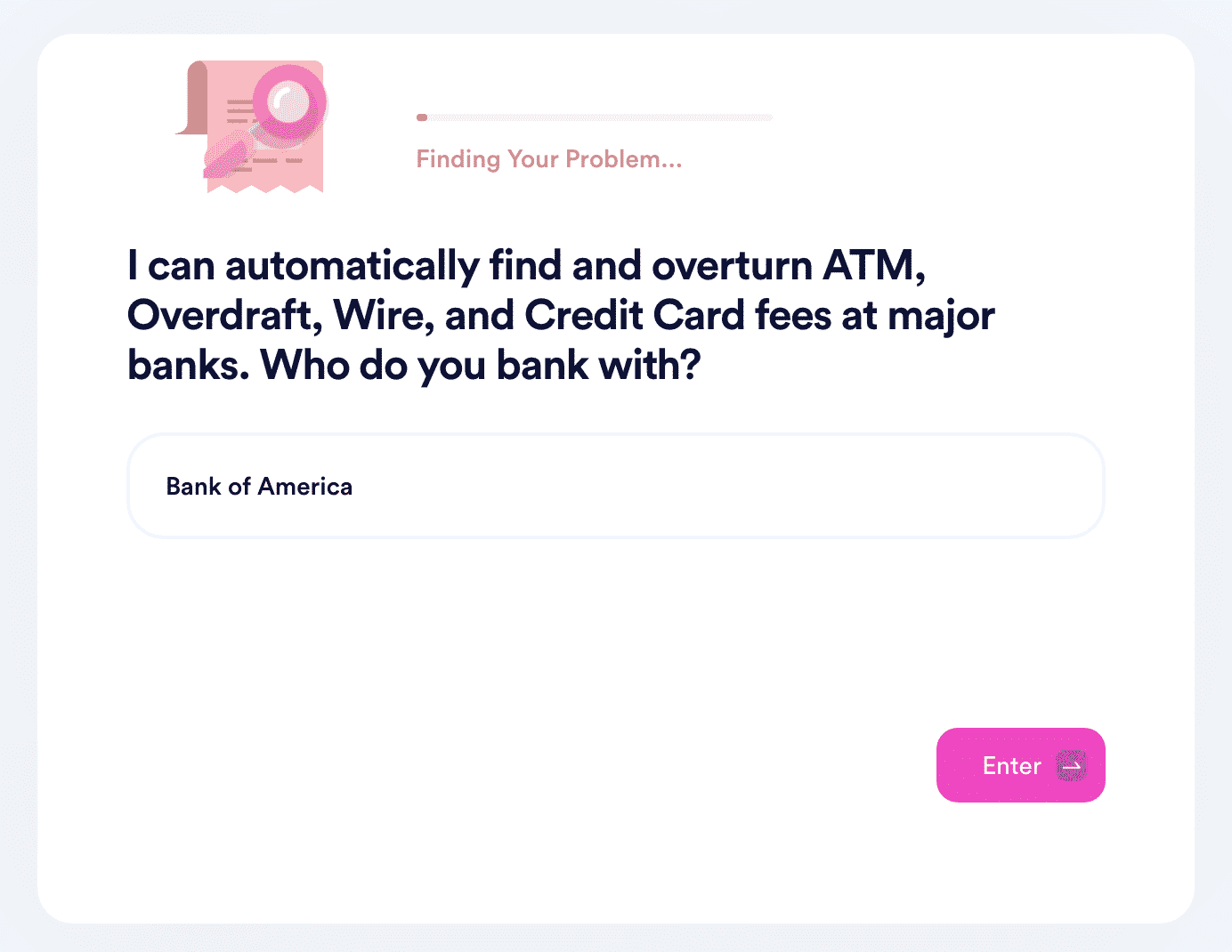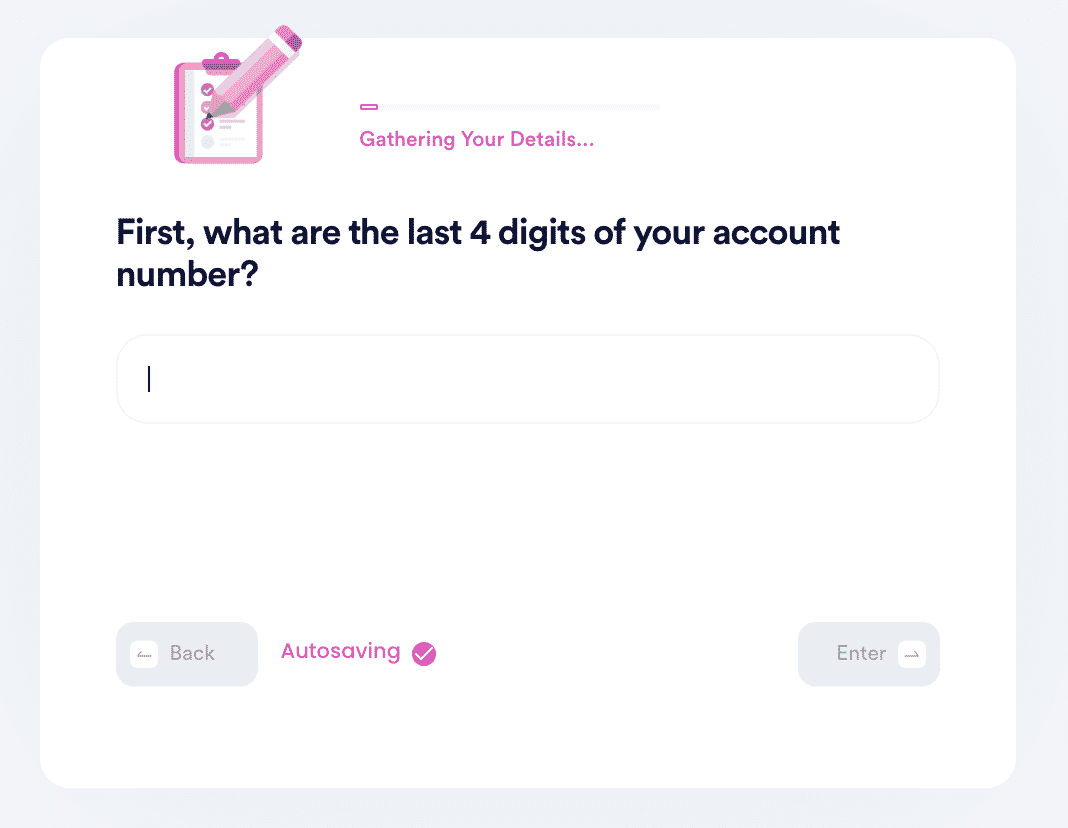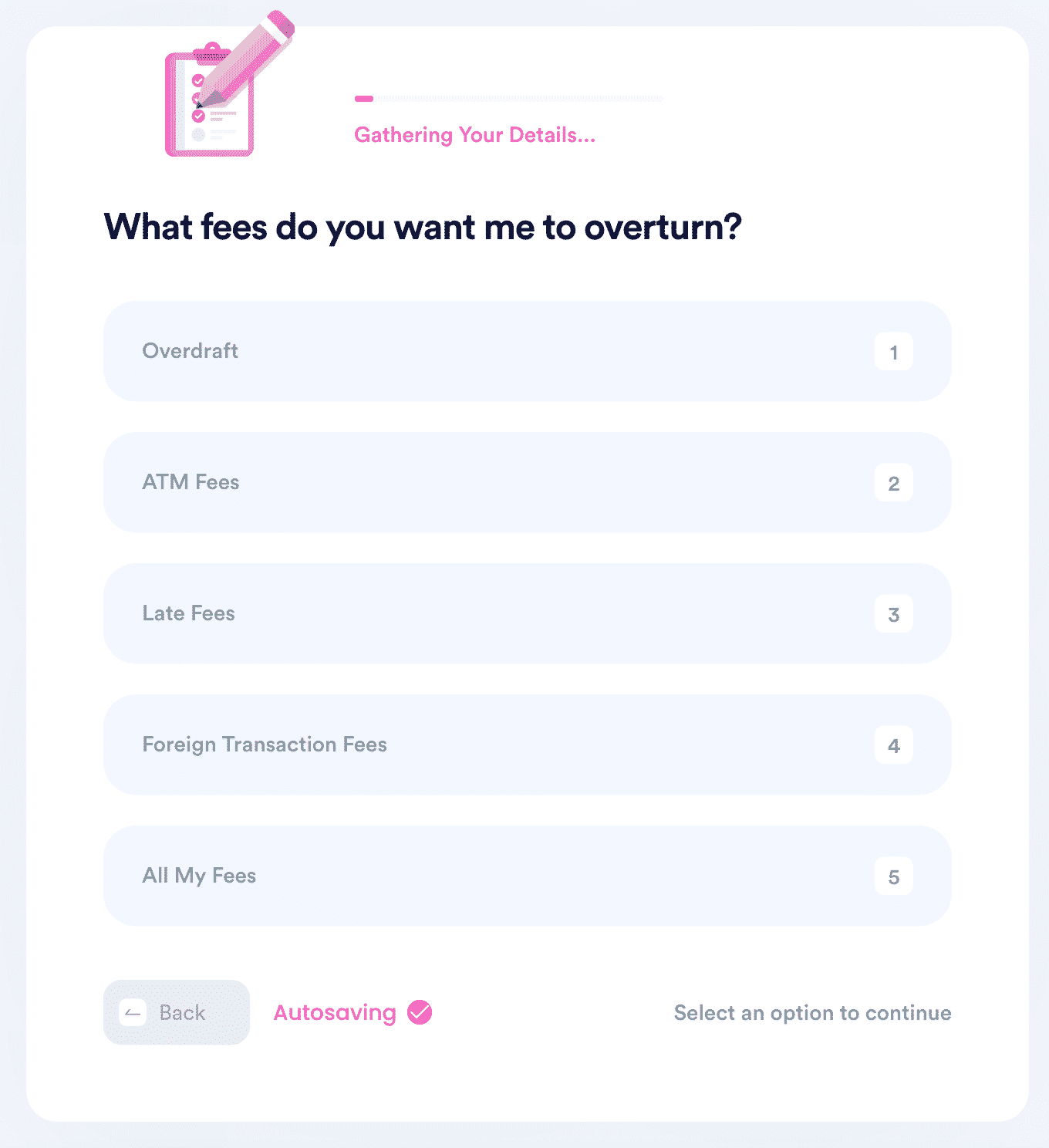How to Get the Chase Bank Money Orders Fee Waived
The and other types of fees charged by banks are considered unfair by many consumers. The amount of each bank fee may seem minimal, but collectively, they add up over time. Even the few dollars lost to a bank fee could be better spent on a fast-food lunch or an impulse purchase from a local business. But you may not have to pay them. Are you aware that it's possible to get the Chase Bank money orders fee and many other bank fees waived?
The average American pays $7.00 in banking fees every month. Fees often add up to over $100.00 per year. If overdrafts are incurred by those not enrolled in an overdraft protection program, hundreds of dollars may be lost. Those already short of funds definitely cannot afford to pay a fee. Chase bank also imposes overdraft fees which are difficult, if not impossible, to fight on your own.
The same goes for overdraft fees charged by Citizens Bank, Fifth Third Bank, TD Bank, and Bank of America customers. But help is available. DoNotPay can often get you a refund. And did you know that some banks don't charge overdraft fees? You may want to switch to one of these or sign up for help from us to potentially avoid charges when overdrafts occur.
Attempting to solve the problem of bank fees - like getting charges such as Chase Bank's money orders fee waived by yourself can be aggravating. Often efforts to get bank fees dropped on your own won't get results, but DoNotPay can help. We provide a more convenient and effective way to get out of paying bank fees like those imposed by Chase Bank upon money order purchases.
Common Charges and Fees Imposed by Banks
Financial institutions make money by charging their customers bank fees for specific services or for failing to meet the terms of an account. The following are some common fees charged by banks.
What Are Some Types of Bank Fees?
- Overdraft fees - Spending more money than you have in your account can easily happen inadvertently. Simply forgetting to record a transaction can end up being quite expensive.
- Money order fees - Paying bills with money orders shouldn't cost you significant dollars. But many banks charge for this service.
- Monthly maintenance service fees - Fees bank customers must pay. Simply for the " privilege" of having an account.
- Insufficient fund fees - Failing to maintain a minimum balance often triggers charges. This further reduces the customer's already minimal funds.
- Early account closing fees - Paying off a loan before the scheduled time or closing an account before its maturity date often results in lost cash.
- Excessive transactions fees - Some accounts only permit a limited number of free transactions within a specified time period. If you need to write an extra check, your account balance will be reduced.
But, in many cases, these types of fees may be waived. Sign up with DoNOtPay for help in fighting bank fees imposed by Chase for money order purchases and various fees implemented by other banks.
What Is a Money Order Fee?
A money order fee is an amount charged by a bank simply for issuing a customer a money order. The fee charged often seems unreasonable in relation to the short time and lack of labor needed to provide such a service. It only takes a moment to issue such a document. The following is a list of money order fees charged by several major banks. DoNotPay can help you avoid them.
| Name of bank | Amount charged to issue a money order |
| Chase | If you have a Chase Premier Plus or Premier Platinum checking account, the fee is automatically waived - but Chase Total, Chase College, or Chase High School account customers pay a fee of $5.00. |
| Wells Fargo | The same principle applies. Wells Fargo premium checking account users pay nothing for money orders. More basic checking account users pay $5.00 for each money order. |
| Fifth Third Bank | Money orders are $1.00 each for those with Fifth Third checking accounts. |
| TD Bank | Money orders for bank customers cost $5.00. |
Why Do Chase Bank and Many Other Banks Charge Money Order Fees?
Banks charge fees to pay for operating expenses and make a profit. But the cost of fees can add up to create a significant impact on your budget. Learning ways to limit fees can be tedious.
Getting banks to waive them is far from easy if you do it on your own. But if you register with DoNotPay, we can contact your bank for you. With our help, bank fees can often be dropped.
Money Order Fees at Chase Bank Explained
You can get a free money order at Chase Bank if you open a Chase Premier Plus or Premier Platinum checking account. If you have a more basic Chase Total, Chase College, or Chase High School account, you'll have to pay $5.00.
But you may be able to avoid the fee if you make a formal request to Chase Bank yourself or let DoNotPay help. Here's an overview of Chase Bank's fees for money orders based on each type of checking account held by the person making a money order purchase.
| Type of Chase Checking Account | Fee for a Money Order |
| Chase Total | $5.00 |
| Chase High School | $5.00 |
| Chase College | $5.00 |
| Chase Premier Plus | $0 |
| Chase Platinum | $0 |
If you don't want to upgrade your checking account, you'll need to approach the bank properly to get the fee for money orders waived. But it will definitely be worth the effort if you purchase money orders on a regular basis. The approach, however, must be done wisely to be effective.
Will Chase Bank Waive Fees?
Many people aren't aware of the opportunity. But you can ask any bank, including Chase, to waive a fee. If you do it the right way, you may convince the bank to waive or refund a charge. But it will take some skill and a planned approach. Not at all sure how to do it? Don't worry. DoNotPay can do it for you.
How to Get Your Chase Bank Money Order Fee Waived on Your Own
You'll need to contact the bank. Send a message to the right person explaining why you think your money order fees should be waived. If you're skillful in your approach, you're likely to get results. But it will take some creative thinking on your part to be convincing.
Best Banks to Avoid Money Order Fees
You can get a free money order at many banks. But the catch is you have to open a certain type of checking account most of the time. You can also request that the fee be waived with the help of DoNotPay. If you want to stick with the bank you're with, contact DoNotPay for help with arranging to have your fees waived.
What Types of Bank Fees Can I Get Refunds for With DoNotPay
DoNotPay can waive all types of bank fees, not just Chase or another bank's money order charges. Here are just a few of the fees you can avoid with DoNotPay's help.
- International fees
- ATM charges
- Cost to wire funds
- Overdraft charges
- Insufficient funds penalties
- Maintenance service charges
- Excess transaction costs
- Fees for early account closings
Frequently Asked Questions About DoNotPay’s Service for Avoiding Bank Fees
Three important questions:
- What banks and credit cards does DoNotPay support?
- How much does the service provided by DoNotPay cost?
- How can you keep up with new bank fees that pop up as time passes?
Here are the answers:
- DoNotPay supports ALL banks and credit cards when it comes to helping you avoid paying fees.
- This fee elimination service only costs $36.00 for a subscription.
- DoNotPay can automatically appeal any bank fees applied to your account each month.
Tips for Avoiding Chase Bank Money Order Fees on Your own
Most banks charge a number of fees. But you can contact your bank and request to have them waived. Successful negotiation is an art. Here are three key tips to keep in mind when contacting your bank to discuss a fee waiver request:
- Have a plan before you contact your bank.
- Try to demonstrate that your business is valuable to the bank. Even if you're not their leading depositor, your business helps support the organization.
- Note other banks or organizations that charge more reasonable fees or offer free money orders.
Worried you don't have what it takes to successfully negotiate a money order fee waiver with your bank's administration? Not sure how to approach them? It is true that getting a bank fee waived takes effort and focus. But no worries. DoNotPay has the knowledge and experience to help.
Next Steps for Getting Chase Bank Money Order Fees Waived if You Can’t Do It Yourself
If the steps listed above don't get your waived, you'll need to take further action. You could continue to make contact with the bank, adjust the wording of your requests. But your attempt could turn into a lengthy, frustrating process.
Thankfully, there is an easier way. You could let DoNotPay contact the bank for you. Their position as a entity makes it more likely the bank will take note of the request and waive your money order fee.
How to Get Chase Bank Money Order Fees Waived With the Help of DoNotPay
It's time to stop letting banks take advantage of you with unfair fines and fees. But the do-it-yourself process can be challenging, tedious, and frustrating. It requires a specialized approach to meet with success.
Let DoNotPay file an appeal. And DoNotPay's services aren't limited to getting money order fees waived. They can address all types of bank fees. You can even set up DoNotPay in the background. Our bot will appeal your fees without requiring any action on your part.
If you want to get Chase Bank money order fees waived but don't know where to start, DoNotPay has you covered in 4 easy steps:
- Open the DoNotPay Fight Bank Fees product.

- Enter the name of your bank.

- Verify the last 4 digits of your bank account.

- Choose which fees you want to waive, including overdraft, ATM, and transaction fees.

Why Use DoNotPay to Get Chase Bank Money Order Fees Waived?
DoNotPay service is fast. It saves you hours of time trying to solve issues yourself and it’s really easy to use. There's no struggling with tedious procedures, no need to keep track of the process. DoNotPay's experience provides an advantage. You can be certain they'll offer the best effort possible to resolve your problem.
What Else Can DoNotPay Do?
Here are some related issues DoNotPay can help you address.
- Chase Bank overdraft fees
- Overdraft Fees on Weekends
- Bank of America ATM fees
- PayPal transfer to bank fees
- Wells Fargo checking account overdraft fees
 By
By